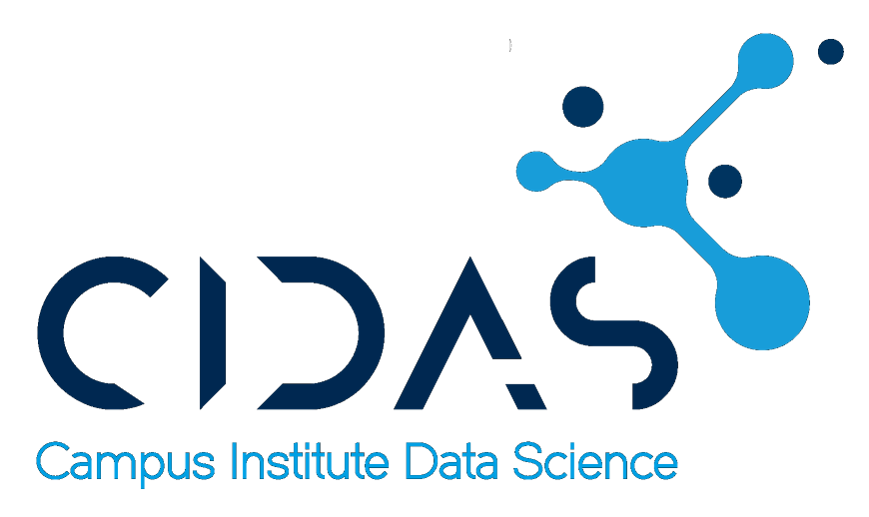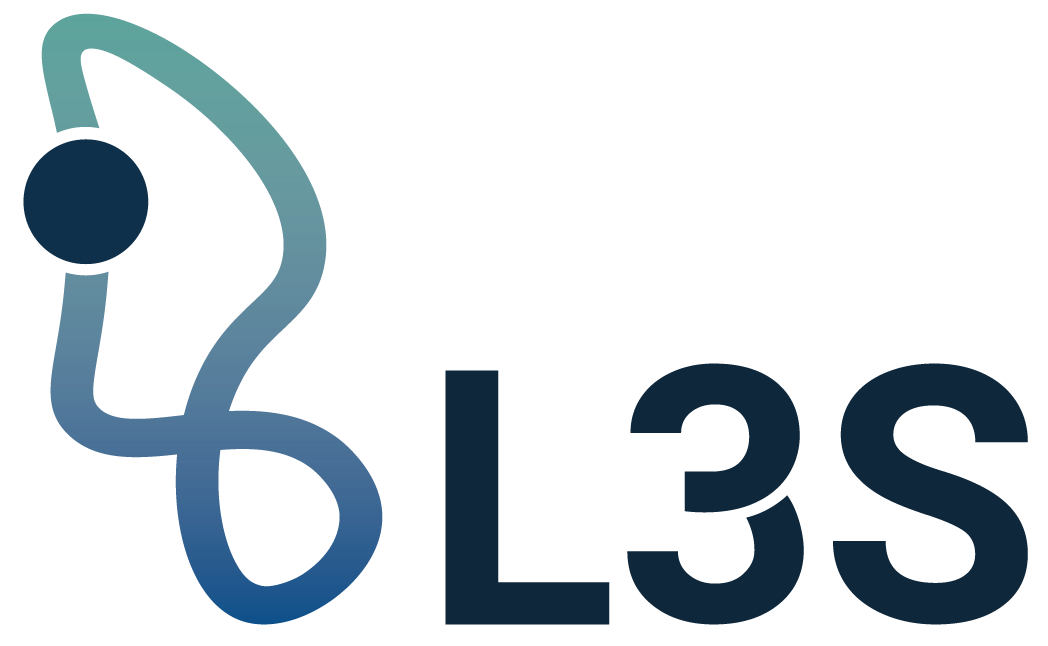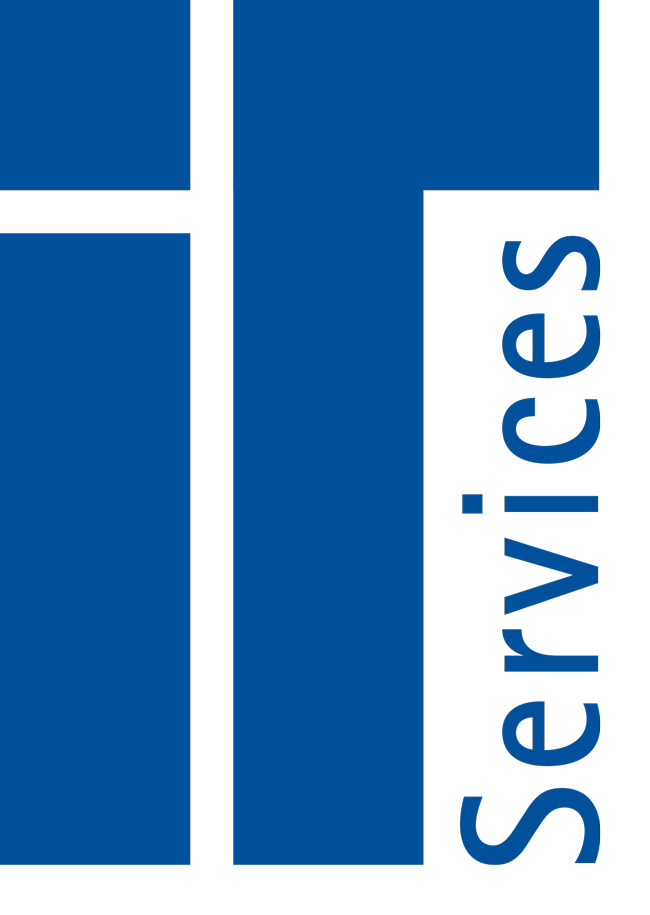The KISSKI consortium consists of partners in Göttingen (UGOE: CIDAS and UMG; aQua, HAWK), Hannover (LUH: LUIS, L3S; MHH) and Kassel (IEE) whose core competencies complement each other.
AI methodological competence is contributed by the Campus Institute DataScience (CIDAS) of the Georg-August University of Göttingen (UGOE), the University of Applied Sciences and Arts (HAWK) and the L3S Research Centre of the Leibniz University of Hannover (LUH). The operation of the AI infrastructure is carried out by the Gesellschaft für wissenschaftliche Datenverarbeitung Göttingen (GWDG) together with Leibniz Universität IT Services (LUIS).
Domain knowledge in the health sector is provided by the University Medical Center Göttingen (UMG). The Göttingen-based Institute for applied quality improvement and scientific quality research in healthcare (aQua) provides the link to industry.
The energy sector is addressed by the Fraunhofer Institute for Energy Economics and Energy Technology (IEE) in Kassel.
Georg-August University of Göttingen (UGOE)
🔗

The 13 faculties of the University of Göttingen cover a wide range of subjects, with one research focus on the life sciences (e.g. Campus Institute for Dynamics of Biological Networks (CIDBN), Bernstein Center for Computational Neuroscience). Its excellence in this field is underlined by its fourth place nationwide in the DFG Funding Atlas 2021. For KISSKI, this focus enables synergies in the health field.
Campus Institute Data Science (CIDAS)
🔗

CIDAS is a central scientific institution of the University of Göttingen and a hub for inter-faculty and campus-wide cooperation in the field of data science and AI. It coordinates and develops activities in research, teaching and knowledge transfer in this field. The interaction between the disciplines of computer science, mathematics, statistics, economics and the application subjects results in a high level of interdisciplinary exchange. In total, more than 100 people from various faculties of the University of Göttingen and from the Max Planck Institutes located in Göttingen are involved in the CIDAS. Knowledge and research projects are communicated via study offers, workshops and lecture series for the Göttingen Campus and provide the opportunity for further collaborations.
University Medical Center Göttingen (UMG)
🔗

The University Medical Center Göttingen is one of the largest university hospitals and medical faculties in Germany. It offers all medical specialties for the comprehensive treatment of acute and chronic diseases and has more than 300,000 outpatient and inpatient visits per year. With its profile-forming research focus on neuroscience, cardiovascular medicine and oncology, UMG addresses particularly common diseases that are key drivers in AI-based health data analysis and decision support. Image and biosignal data for various fields, e.g. functional imaging, sensor-based monitoring and digital pathology, play an essential role here. The UMG-MeDIC continuously integrates data from already more than 7 million cases and makes them available for data-driven research. In addition, the Institute of Medical Informatics develops solutions for the data management of nationwide research networks such as the German Centre for Cardiovascular Diseases and the University Medicine Network. The UMG is involved in CIDAS with several institutions developing AI-based image analysis methods, prediction models and clinical decision support systems, among other things, and has acquired numerous research funds in the field of AI and machine learning in medicine.
Gesellschaft für wissenschaftliche Datenverarbeitung Göttingen (GWDG)
🔗

The GWDG, as a limited liability company, is the computing and data centre of the University of Göttingen and the IT competence centre of the Max Planck Society. With more than 200 employees, it offers the entire spectrum of IT services to more than 100,000 users from all over Germany. Its services include the reliable provision of basic services such as collaborative tools, data storage and archiving, cloud services and server hosting. Research-related services are also represented, for example software services for data analysis and bioinformatics, software development for science, and especially scientific computing. These services are crucial “enablers” for science and are oriented towards the needs of researchers. In addition, the GWDG conducts its own research in the field of applied computer science in order to identify new topics at an early stage and expand the range of services accordingly. Scientific computing and HPC services have been provided by the GWDG since it was found in 1970. To this end, the GWDG operates several HPC systems, including the Tier2 system “Emmy”, in its role as a Centre for National High Performance Computing (NHR). It is also one of the two central HPC competence and operations centres of DLR, for which it operates “CARO”, the second top 500 system alongside “Emmy”.
aQua - Institute (aQua)
🔗

The Institute for applied quality improvement and scientific quality research in healthcare GmbH (aQua) is an independent, interest-neutral consulting and research company for quality in health care. Since 1995, the institute has gained experience with the scientific evaluation of health data and offers consulting and concept development for improvement and assurance of quality as well as the implementation of complex large-scale projects. The aQua Institute has its own server infrastructure and meets the highest data protection requirements with regard to handling sensitive (health) data. The aQua Institute operates an information security management system (ISMS) that is certified according to DIN EN ISO/IEC 27001:2013. In the research on and application of AI methods, the aQua institute is developing a white paper on AI-supported data analysis and modelling of routine data in cooperation with the UMG and the association of company health insurance funds. The aQua Institute also has extensive experience in dealing with large amounts of data, different data formats and corresponding analyses from different areas of the health care system.
Leibniz University Hannover (LUH)
🔗

The Leibniz University Hannover (LUH) was founded in 1831 and has around 29,000 students in the natural sciences, engineering, humanities, social sciences, law and economics. More than 2,500 people work at the university in 9 faculties with around 160 departments and institutes. The excellence of the Faculty of Electrical Engineering and Computer Science is demonstrated, among other things, by its participation in several clusters of excellence and by several ERC Starting, Consolidator and Advanced Grants.
Research Center L3S
🔗

The L3S research centre bundles relevant institutions and disciplines in Hannover and Braunschweig and thus forms an important crystallisation point and contact for all questions in the context of AI. The L3S works under the guiding theme of “Intelligent, Reliable and Responsible Systems” and is characterised by interdisciplinary, nationally and internationally visible research in many areas of computer science. Research foci include NLP, web science, digital signal processing, autoML, communication technology and knowledge graphs. Other members of the L3S come from the fields of law, sociology and philosophy. Seven of its members have successfully obtained ERC grants. L3S members are responsible for numerous DFG projects as well as applied research projects funded by BMBF, BMWi, ZIM, AIF and industry.
Leibniz University IT Services (LUIS)
🔗

Since it was found in 1971 as a central institution of the University of Hannover, LUIS has been providing IT services and IT infrastructure for research, teaching and administration. It offers employees, students and guests of the LUH as well as external cooperation partners a comprehensive and up-to-date range of IT-supported data processing services. The objective of LUIS is to provide user-oriented and attractive IT services and a reliable IT infrastructure. To support the more than 35,000 users, numerous IT services are provided in the areas of communication systems, scientific computing, storage systems, applications, IT security, operations and infrastructure, as well as training, consulting and support. For many years, LUIS has operated medium-sized computing clusters that are used for research and teaching purposes. The computing cluster currently provides around 10,000 CPU cores with approx. 60 TB of RAM. .
Fraunhofer Institute for Energy Economics and Energy System Technology (IEE)
🔗

Fraunhofer IEE in Kassel has around 400 employees conducting research on the transformation of energy systems. It develops solutions to technical and economic challenges in order to further reduce the costs of using renewable energies, secure energy supply despite volatile generation, ensure grid stability at a high level and make the transition to renewable energies an economic success. One of the Institute’s focal points is the digitalisation of the energy supply system. In the two main research areas of energy informatics and energy meteorology and geoinformation systems, IEE has been working on the application of AI processes in the energy industry for more than 20 years. Systems for forecasting electricity generation from renewable energies, electricity consumption and the resulting power flows in the electricity grid are particularly worth mentioning. These systems were developed together with the German electricity transmission grid operators. In addition, Fraunhofer IEE has been heading the Competence Center Cognitive Energy Systems (K-ES) since 2020, which deals with cognitive processes for energy system technology, the energy industry and energy grids.
University of Applied Sciences and Art (HAWK)
🔗

Das Fraunhofer IEE in Kassel forscht mit etwa 400 Mitarbeitenden an der Transformation der Energiesysteme. Es entwickelt Lösungen für technische und wirtschaftliche Herausforderungen, um die Kosten für die Nutzung erneuerbarer Energien weiter zu senken, die Versorgung trotz volatiler Erzeugung zu sichern, die Netzstabilität auf hohem Niveau zu gewährleisten und die Energiewende zu einem wirtschaftlichen Erfolg zu führen.
Einer der Schwerpunkte des Instituts ist die Digitalisierung des Energieversorgungssystems. In den beiden Forschungsschwerpunkten Energieinformatik sowie Energiemeteorologie und Geoinformationssysteme beschäftigt sich das IEE seit mehr als 20 Jahren mit der Anwendung von KI-Verfahren in der Energiewirtschaft. Hervorzuheben sind hierbei Systeme zur Prognose der Stromerzeugung aus Erneuerbaren Energien, des Stromverbrauchs sowie der resultierenden Leistungsflüsse im Stromnetz. Diese Systeme wurden gemeinsam mit den deutschen Stromübertragungsnetzbetreibern entwickelt. Zudem leitet das Fraunhofer IEE seit 2020 das Kompetenzzentrum Kognitive Energiesysteme (K-ES), welches sich mit kognitiven Prozessen für die Energiesystemtechnik, die Energiewirtschaft sowie die Energienetze beschäftigt.
